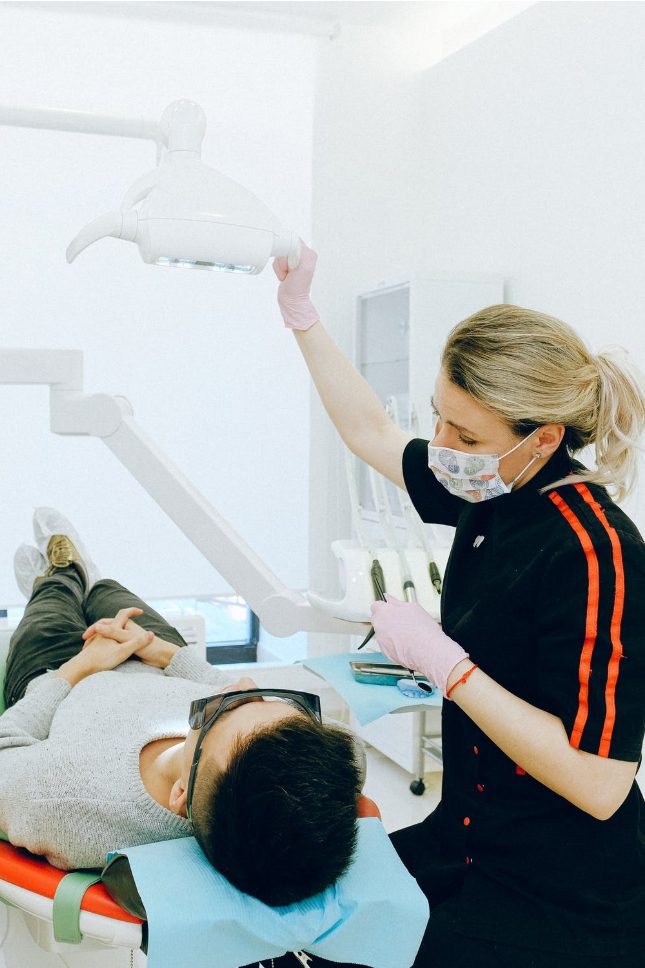What are crowns/caps?
Dental Crowns: Explained
A dental crown is made from porcelain, resin, ceramic, and other metals. It is built to look like a tooth-shaped cap that sits over your damaged tooth and helps to restore the appearance and protect it in the long run. It can restore your tooth’s size, strength, appearance, and shape. As crowns cover the visible portion of the tooth, you will not be able to see any of your old teeth when you smile.
You may have heard the terms crowns and caps thrown around when doing your research. It’s important to know that there’s no difference! A crown and a cap are exactly the same thing, but the words are something used interchangeably – don’t let this confuse you while doing your research.
How Do You Know If You Need A Dental Crown?
There are a few things to look out for if you think you might need a dental crown. For example:
- Tooth decay – teeth can become weak from decay, so it’s important to protect them with crowns. They will hold them together and stop them from breaking off altogether.
- Your teeth are worn down – teeth can wear down over time, sometimes more severely if you grind your teeth/suffer with bruxism.

- You don’t have a lot of tooth left – in some cases, you may have a large filling without much tooth surrounding it, in which case you will need some backup support there to keep everything in place.
- Misshapen and discolored teeth – of course, you can also have dental crowns if you don’t like the appearance of your teeth due to the shape or color.
More About Crown Material
There are various types of materials available for those who are looking into crowns. For example:
- Metals – gold, nickel, chromium and other metals can be used to create crowns. Metal crowns tend to last the longest as they are durable against chips and breaks. However, the downside is the color, so they are a good option for out of site molars rather than the teeth you can see.
- All-resin – this kind tends to wear down a little faster than other kinds, although they may be less expensive.
- Porcelain fused to metal – a dental crown will be matched to the rest of your teeth. However, the metal underneath may sometimes show through, and this can look like a dark line. The porcelain may not be as durable as other materials, either. This option can be good for front or back teeth.
- All ceramic or all porcelain – this type provides the most natural color match. They are a good choice for people who have metal allergies, but are not as strong as porcelain fused to metal. They can make a good choice for front teeth.
- Pressed ceramic – these crowns have a hard inner core and are capped with porcelain to provide a color match. They last longer than all-porcelain.
More About Having A Crown
Having a crown installed does not hurt, as it’s carried out under local anesthetic and you will be made comfortable before the treatment begins. A small amount of tooth structure will be removed to make way for the crown, and an impression will be sent to the lab so that the crown can be created. You may have your tooth covered with a temporary crown, as the permanent crown can take 2 weeks to make. At the fitting appointment your temporary crown will be removed and your new crown will be cemented.
A crown can last anywhere from 10-15 years if you take good care of it. You will need to treat it as you do your own teeth, so brushing and flossing are important. Don’t neglect it as you think it doesn’t need maintenance – just treat it as you are supposed to treat your other teeth and it will last.
If you need tooth restoration due to breaks, discoloration, and other issues, then crowns/caps could be the perfect choice for you.

